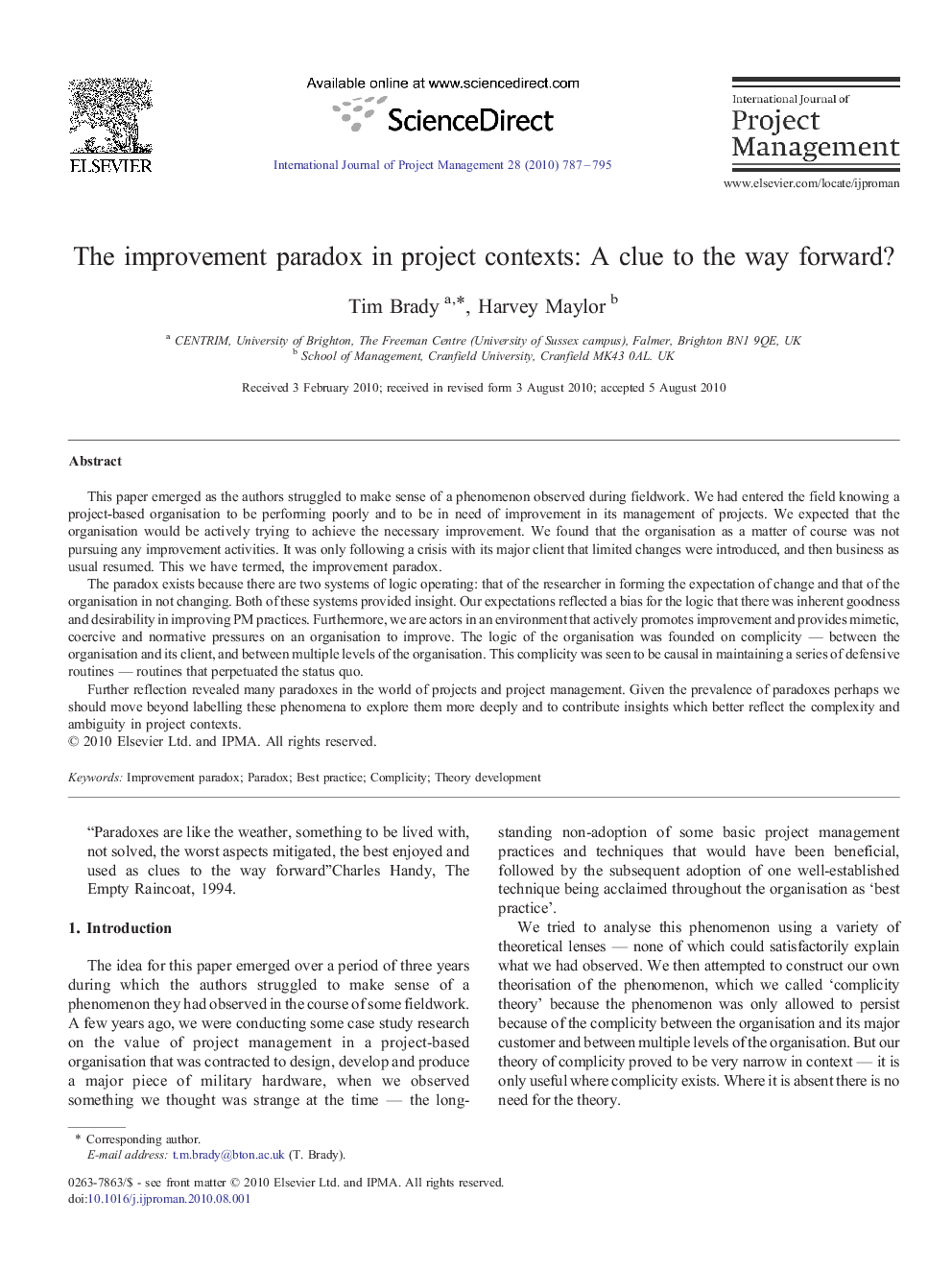| Article ID | Journal | Published Year | Pages | File Type |
|---|---|---|---|---|
| 276754 | International Journal of Project Management | 2010 | 9 Pages |
This paper emerged as the authors struggled to make sense of a phenomenon observed during fieldwork. We had entered the field knowing a project-based organisation to be performing poorly and to be in need of improvement in its management of projects. We expected that the organisation would be actively trying to achieve the necessary improvement. We found that the organisation as a matter of course was not pursuing any improvement activities. It was only following a crisis with its major client that limited changes were introduced, and then business as usual resumed. This we have termed, the improvement paradox.The paradox exists because there are two systems of logic operating: that of the researcher in forming the expectation of change and that of the organisation in not changing. Both of these systems provided insight. Our expectations reflected a bias for the logic that there was inherent goodness and desirability in improving PM practices. Furthermore, we are actors in an environment that actively promotes improvement and provides mimetic, coercive and normative pressures on an organisation to improve. The logic of the organisation was founded on complicity — between the organisation and its client, and between multiple levels of the organisation. This complicity was seen to be causal in maintaining a series of defensive routines — routines that perpetuated the status quo.Further reflection revealed many paradoxes in the world of projects and project management. Given the prevalence of paradoxes perhaps we should move beyond labelling these phenomena to explore them more deeply and to contribute insights which better reflect the complexity and ambiguity in project contexts.
